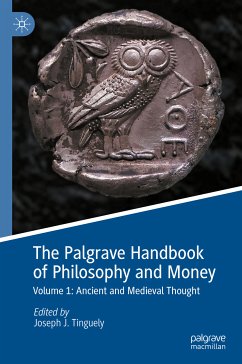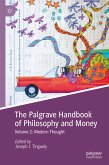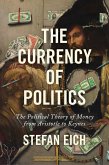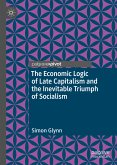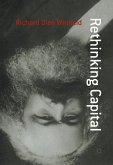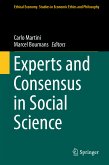The Palgrave Handbook of Philosophy and Money (eBook, PDF)
Volume 1: Ancient and Medieval Thought
Redaktion: Tinguely, Joseph J.
161,95 €
161,95 €
inkl. MwSt.
Sofort per Download lieferbar

81 °P sammeln
161,95 €
Als Download kaufen

161,95 €
inkl. MwSt.
Sofort per Download lieferbar

81 °P sammeln
Jetzt verschenken
Alle Infos zum eBook verschenken
161,95 €
inkl. MwSt.
Sofort per Download lieferbar
Alle Infos zum eBook verschenken

81 °P sammeln
The Palgrave Handbook of Philosophy and Money (eBook, PDF)
Volume 1: Ancient and Medieval Thought
Redaktion: Tinguely, Joseph J.
- Format: PDF
- Merkliste
- Auf die Merkliste
- Bewerten Bewerten
- Teilen
- Produkt teilen
- Produkterinnerung
- Produkterinnerung

Bitte loggen Sie sich zunächst in Ihr Kundenkonto ein oder registrieren Sie sich bei
bücher.de, um das eBook-Abo tolino select nutzen zu können.
Hier können Sie sich einloggen
Hier können Sie sich einloggen
Sie sind bereits eingeloggt. Klicken Sie auf 2. tolino select Abo, um fortzufahren.

Bitte loggen Sie sich zunächst in Ihr Kundenkonto ein oder registrieren Sie sich bei bücher.de, um das eBook-Abo tolino select nutzen zu können.
The Palgrave Handbook of Philosophy and Money surveys the role of money in the history of ideas. Volume 1: Ancient and Medieval Thought explores the worldviews of societies in the process of monetization. The volume is divided into sections on early Civilizations, classical Greece, the Roman era, and Medieval and Renaissance thought. Joseph J. Tinguely is associate professor of philosophy at the University of South Dakota. He is the author of Kant and the Reorientation of Aesthetics: Finding the World (2017).
- Geräte: PC
- ohne Kopierschutz
- eBook Hilfe
- Größe: 17.69MB
Andere Kunden interessierten sich auch für
![The Palgrave Handbook of Philosophy and Money (eBook, PDF) The Palgrave Handbook of Philosophy and Money (eBook, PDF)]() The Palgrave Handbook of Philosophy and Money (eBook, PDF)161,95 €
The Palgrave Handbook of Philosophy and Money (eBook, PDF)161,95 €![The Currency of Politics (eBook, PDF) The Currency of Politics (eBook, PDF)]() Stefan EichThe Currency of Politics (eBook, PDF)15,95 €
Stefan EichThe Currency of Politics (eBook, PDF)15,95 €![The Economic Logic of Late Capitalism and the Inevitable Triumph of Socialism (eBook, PDF) The Economic Logic of Late Capitalism and the Inevitable Triumph of Socialism (eBook, PDF)]() Simon GlynnThe Economic Logic of Late Capitalism and the Inevitable Triumph of Socialism (eBook, PDF)40,95 €
Simon GlynnThe Economic Logic of Late Capitalism and the Inevitable Triumph of Socialism (eBook, PDF)40,95 €![Rethinking Capital (eBook, PDF) Rethinking Capital (eBook, PDF)]() Richard Dien WinfieldRethinking Capital (eBook, PDF)89,95 €
Richard Dien WinfieldRethinking Capital (eBook, PDF)89,95 €![Experts and Consensus in Social Science (eBook, PDF) Experts and Consensus in Social Science (eBook, PDF)]() Experts and Consensus in Social Science (eBook, PDF)73,95 €
Experts and Consensus in Social Science (eBook, PDF)73,95 €![Karl Marx's Life, Ideas, and Influences (eBook, PDF) Karl Marx's Life, Ideas, and Influences (eBook, PDF)]() Karl Marx's Life, Ideas, and Influences (eBook, PDF)97,95 €
Karl Marx's Life, Ideas, and Influences (eBook, PDF)97,95 €![A Business Leader's Guide to Philosophy (eBook, PDF) A Business Leader's Guide to Philosophy (eBook, PDF)]() Lindsay DawsonA Business Leader's Guide to Philosophy (eBook, PDF)44,95 €
Lindsay DawsonA Business Leader's Guide to Philosophy (eBook, PDF)44,95 €-
-
-
The Palgrave Handbook of Philosophy and Money surveys the role of money in the history of ideas. Volume 1: Ancient and Medieval Thought explores the worldviews of societies in the process of monetization. The volume is divided into sections on early Civilizations, classical Greece, the Roman era, and Medieval and Renaissance thought.
Hinweis: Dieser Artikel kann nur an eine deutsche Lieferadresse ausgeliefert werden.
Joseph J. Tinguely is associate professor of philosophy at the University of South Dakota. He is the author of Kant and the Reorientation of Aesthetics: Finding the World (2017).
Dieser Download kann aus rechtlichen Gründen nur mit Rechnungsadresse in A, B, BG, CY, CZ, D, DK, EW, E, FIN, F, GR, HR, H, IRL, I, LT, L, LR, M, NL, PL, P, R, S, SLO, SK ausgeliefert werden.
Hinweis: Dieser Artikel kann nur an eine deutsche Lieferadresse ausgeliefert werden.
Produktdetails
- Produktdetails
- Verlag: Springer International Publishing
- Seitenzahl: 809
- Erscheinungstermin: 24. Juni 2024
- Englisch
- ISBN-13: 9783031541360
- Artikelnr.: 71167968
- Verlag: Springer International Publishing
- Seitenzahl: 809
- Erscheinungstermin: 24. Juni 2024
- Englisch
- ISBN-13: 9783031541360
- Artikelnr.: 71167968
- Herstellerkennzeichnung Die Herstellerinformationen sind derzeit nicht verfügbar.
Joseph J. Tinguely is associate professor of philosophy at the University of South Dakota. He is the author of Kant and the Reorientation of Aesthetics: Finding the World (2017).
Chapter 1. Introduction.- Chapter 2. Philosophy and Money: The Ancient Near East.- Chapter 3. Philosophy and Money in Ancient Egypt.- Chapter 4. Premodern Indian Philosophical Commitments and "Money".- Chapter 5. Classical Chinese Monetary Theory.- Chapter 6. The Philosophy of Money in Early Judaism (500 BCE-100 CE).- Chapter 7. Yoru ba Philosophy and Changing Views of Money.- Chapter 8. Money and Metaphysics Among the Maya and Nahua.- Chapter 9. Money and Presocratic Philosophy.- Chapter 10. Sophists and Money.- Chapter 11. The Oligarch, the Philosopher, and Hoarding in Plato.- Chapter 12. Xenophon on Money and its Right Use.- Chapter 13. The Cynics and Money.- Chapter 14. Aristotle: Slavery, Inequality, and Money.- Chapter 15. Roman Mythical Thought and the Origins of Coinage.- Chapter 16. Cicero on Money and Property.- Chapter 17. Seneca and the Uses of Money.- Chapter 18. Pliny the Elder on Money.- Chapter 19. Coinage and Money in the Roman Jurists' Thought.- Chapter 20. Money in Imperial Roman Law.- Chapter 21. Rabbis, Money, and Jewish Solidarity in the Roman Empire.- Chapter 22. God, Money, and the 99%: Contextualizing the New Testament.- Chapter 23. A Perilous Concept: Philosophies of Money in Early Christian Thought.- Chapter 24. Islamic Thought on Interest and Usury.- Chapter 25. Usury in Medieval Jewish Thought.- Chapter 26. "Ipsius consumptio sive distractio": Money, Interest, and Capital in Thomas Aquinas.- Chapter 27. Usury in Medieval Christianity.- Chapter 28. Exchanging Money for Money: Late-Scholastic Thought in Early Modern Spain.- Chapter 29. Money as Metaphor and Symbol: From the Patristic Era to the Twelfth Century.- Chapter 30. Money, Debt, and Morals in Anselm of Canterbury.- Chapter 31. Money and Muslim Philosophers.- Chapter 32. Philosophy of Money in Islam.- Chapter 33. Mensurantur enim omnia nummismate: The Impact of Money and Monetization on Vital New Directions in Scholastic Philosophy, ca. 1250-1350.- Chapter 34. The Vision of Money in the Writings of Christine de Pizan.- Chapter 35. Philosophy of Money in Renaissance France.
Chapter 1. Introduction.- Chapter 2. Philosophy and Money: The Ancient Near East.- Chapter 3. Philosophy and Money in Ancient Egypt.- Chapter 4. Premodern Indian Philosophical Commitments and "Money".- Chapter 5. Classical Chinese Monetary Theory.- Chapter 6. The Philosophy of Money in Early Judaism (500 BCE-100 CE).- Chapter 7. Yoru ba Philosophy and Changing Views of Money.- Chapter 8. Money and Metaphysics Among the Maya and Nahua.- Chapter 9. Money and Presocratic Philosophy.- Chapter 10. Sophists and Money.- Chapter 11. The Oligarch, the Philosopher, and Hoarding in Plato.- Chapter 12. Xenophon on Money and its Right Use.- Chapter 13. The Cynics and Money.- Chapter 14. Aristotle: Slavery, Inequality, and Money.- Chapter 15. Roman Mythical Thought and the Origins of Coinage.- Chapter 16. Cicero on Money and Property.- Chapter 17. Seneca and the Uses of Money.- Chapter 18. Pliny the Elder on Money.- Chapter 19. Coinage and Money in the Roman Jurists' Thought.- Chapter 20. Money in Imperial Roman Law.- Chapter 21. Rabbis, Money, and Jewish Solidarity in the Roman Empire.- Chapter 22. God, Money, and the 99%: Contextualizing the New Testament.- Chapter 23. A Perilous Concept: Philosophies of Money in Early Christian Thought.- Chapter 24. Islamic Thought on Interest and Usury.- Chapter 25. Usury in Medieval Jewish Thought.- Chapter 26. "Ipsius consumptio sive distractio": Money, Interest, and Capital in Thomas Aquinas.- Chapter 27. Usury in Medieval Christianity.- Chapter 28. Exchanging Money for Money: Late-Scholastic Thought in Early Modern Spain.- Chapter 29. Money as Metaphor and Symbol: From the Patristic Era to the Twelfth Century.- Chapter 30. Money, Debt, and Morals in Anselm of Canterbury.- Chapter 31. Money and Muslim Philosophers.- Chapter 32. Philosophy of Money in Islam.- Chapter 33. Mensurantur enim omnia nummismate: The Impact of Money and Monetization on Vital New Directions in Scholastic Philosophy, ca. 1250-1350.- Chapter 34. The Vision of Money in the Writings of Christine de Pizan.- Chapter 35. Philosophy of Money in Renaissance France.
